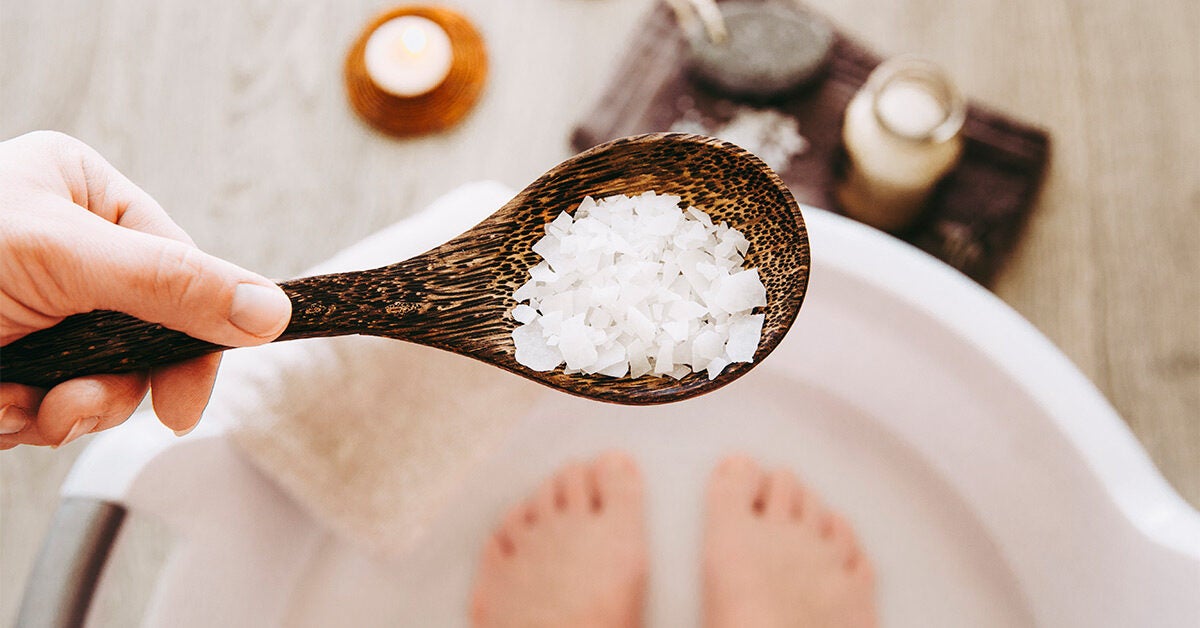Table of Contents
What are bath salts?
Mental and physical health ailments have long been treated with bath salts, as they are a convenient and inexpensive treatment. Frequently made from magnesium sulfate (Epsom salt) or sea salt, bath salts disperse in warm water and are widely used for everything from stress relief to aches and pains.
Health benefits
It may sound obvious, but people with a variety of health concerns may benefit from bath salts.
- muscle pain and stiffness
- stiff, aching joints
- arthritis
- circulation problems
- headaches
- anxiety and stress
- skin conditions, such as eczema
- dry and itchy skin
Conscious language: What does it mean?
Make sure that the way you say things reflects the way people want to be seen by you. With our Conscious Language Guide, you can learn about people-first language and identity-first language.
Bath salts: how to use them
It depends on the purpose you want to serve by using bath salts.
Detox bath
An Epsom salt bath is typically used for detoxification. An ideal detox bath is thought to help remove toxins from the body in order to aid with weight loss, stress relief, and reducing constipation.
Bathing in Epsom salts promotes magnesium absorption as well. For those with a deficiency, such as those with fibromyalgia, this may be beneficial. Following Epsom salt baths, 17 of 19 participants in a 2004 study had increased magnesium and sulfate levels in their blood.
A bath with Epsom salts:
- To fill a bathtub with warm water, add two cups of Epsom salt.
- Run running water over the salt to help it dissolve faster.
- Spend at least 12 minutes in the tub, or 20 minutes if you are constipated.
Additional aromatherapy benefits, such as relaxation and improved mood, can be obtained by adding essential oils like lavender or peppermint.

Muscle aches
Muscle aches are eased with bath salts since they relax tense muscles and reduce inflammation.
To make bath salts for muscle pain:
- For a standard bathtub of warm water, add two cups of Epsom salt.
- To help the Epsom salt dissolve faster, pour it into running water. It will help dissolve any grains remaining in the water if you stir it with your hand.
- Take a minimum of 12 minutes to soak.
It may also be helpful to add a few drops of cinnamon bark essential oil to diluted massage oil. Warmth is provided to the skin by cinnamon bark oil, making it soothing on sore muscles. Study conducted in 2017 Sources you can trust
Moreover, it appears to inhibit inflammation.
Irritation or inflammation of the skin
Eczema, psoriasis, contact dermatitis, and athlete’s foot can be relieved with bath salts. When you have a flare-up of eczema, you may want to add 1 cup of table salt to your bath to reduce the risk of stinging. In addition to Epsom salt, sea salt is also effective for treating skin irritation and inflammation.
The following steps will help relieve itchy and irritated skin:
- For a standard-size bathtub, add one cup of Epsom salt, sea salt, or table salt.
- Then stir the warm water to dissolve the salt. Pour the salt into the bath water and let it run for a minute.
- Take a 20-minute bath in the tub.
In addition to its antimicrobial and antiinflammatory properties, tea tree oil may also be effective at treating skin infections and eczema. Tea tree oil doesn’t come in a single strength, but there are many strengths, including some already diluted, and should be diluted before use. A salt bath with three or four drops of these essential oils provides additional relief from inflammation.

